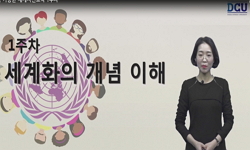Education on sexual minorities is a crucial aspect of fostering inclusivity in a multicultural society. However, in Korea, where heteronormative discourse remains dominant, education on this subject is still insufficient. This study examines the role ...
http://chineseinput.net/에서 pinyin(병음)방식으로 중국어를 변환할 수 있습니다.
변환된 중국어를 복사하여 사용하시면 됩니다.
- 中文 을 입력하시려면 zhongwen을 입력하시고 space를누르시면됩니다.
- 北京 을 입력하시려면 beijing을 입력하시고 space를 누르시면 됩니다.

다문화 사회 교사교육과 안전한 공간(Safe Space)의 이중성: 예비교사의 성소수자 인권 수업 실천 경험에 관한 사례연구1) = Unpacking the Tension of Safe Space in Multicultural Teacher Education: A Case Study of Pre-service Teachers' Lesson Practice on LGBTQ+ Human Rights
한글로보기부가정보
다국어 초록 (Multilingual Abstract)
Education on sexual minorities is a crucial aspect of fostering inclusivity in a multicultural society. However, in Korea, where heteronormative discourse remains dominant, education on this subject is still insufficient. This study examines the role of teacher education in addressing the human rights of sexual minorities, emphasizing the dual nature of teacher training and the concept of Safe Space. By analyzing the experiences of prospective teachers as they planned, implemented, and reflected on lessons about sexual minorities, this study explores the challenges they encountered, including knowledge gaps, conflicts with societal norms, and reliance on safe spaces. While these teachers-in-training aimed to promote awareness of discrimination and human rights, they also faced moments of crisis that led to deeper reflections on oppression and power structures. The findings highlight the need for teacher education that actively challenges dominant power relations, moving beyond symbolic inclusion toward critical engagement with issues of discrimination and justice. This study further examines the balance between safe spaces as sites of protection and spaces for critical discourse, offering future directions for multicultural education that empower educators to facilitate transformative and justice-oriented learning environments.
동일학술지(권/호) 다른 논문
-
2022 개정 사회과 교육과정과 중학교 사회 교과서에 나타난 공감 관련 내용 분석
- 한국사회과교육연구학회
- 조경철
- 2025
- KCI등재
-
- 한국사회과교육연구학회
- 문경호
- 2025
- KCI등재
-
막스 베버의 이상형(Idealtype)을 적용한 개념학습 방안 연: 구고등학교 동아시아사의 17~18세기 사회적 특징의 수업 사례를 중심으로
- 한국사회과교육연구학회
- 안운호
- 2025
- KCI등재
-
- 한국사회과교육연구학회
- 김찬구
- 2025
- KCI등재




 스콜라
스콜라






